Rajesh Khanna
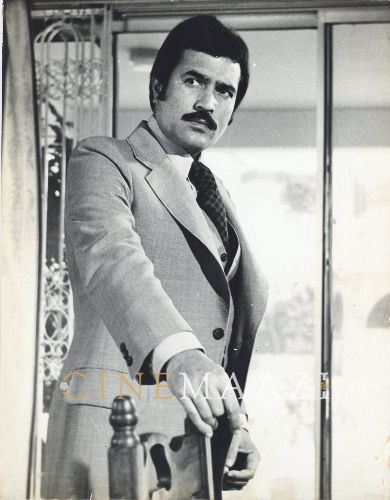
Subscribe to read full article
This section is for paid subscribers only. Our subscription is only $37/- for one full year.
You get unlimited access to all paid section and features on the website with this subscription.
Not ready for a full subscription?
You can access this article for $2 , and have it saved to your account for one year.
- Real Name: Jatin Khanna
- Born: 29 December, 1942 (Amritsar, Punjab)
- Died: 18 July, 2012
- Primary Cinema: Hindi
- Parents: Chandrani Khanna and Lala Hiranand Khanna
- Spouse: Dimple Kapadia
- Children: Twinkle Khanna , Rinke Khanna
Celebrated as Hindi cinema’s first and original superstar, Rajesh Khanna has to his credit the unbroken record of 15 solo hit films in the period from 1969 to 1971. Inspiring a fandom that was unparalleled, he is possibly also the only Hindi film star to have received hundreds of fan mails written in blood, and lip-sticked kisses on the windscreen of his parked car; such was the Rajesh Khanna phenomenon. Making his debut in 1966 with Aakhri Khat, which was India's official Oscar Entry in the Best Foreign Language Film at the 40th Oscar Academy Awards, he featured in more than 160 feature films and 17 short films in the course of his career. His landmark films include Aradhana (1969), Do Raaste (1969), Sachha Jhootha (1970), Safar (1970), Kati Patang (1971), Anand (1971), Haathi Mere Saathi (1971), Dushman (1972), Amar Prem (1972), Apna Desh (1972), Daag (1973), Prem Nagar (1974), Thodisi Bewafai (1980), Avtaar (1983), and Souten (1983).
The highest paid Indian actor for 10 straight years from 1970 to 1980, he shared the honours with Amitabh Bachchan from 1980 till 1987. A three time winner of the Filmfare Best Actor Award for Sachha Jhootha (1970), Anand (1971), and Avishkaar (1974), he also received the Special Guest Actor award for Anuraag (1972), and the Lifetime Achievement Award. He created further frenzy, marrying the most sought after newcomer Dimple Kapadia in 1973, eight months before her debut film Bobby released. He was posthumously awarded India's third highest civilian honour Padma Bhushan, and was also officially bestowed with the title The First Superstar of Indian cinema at Dadasaheb Phalke Academy Awards. He remained Kaka (meaning a baby faced boy in Punjabi) to his friends and loved ones.
Born as Jatin Khanna on 29 December, 1942, in Amritsar, Punjab, he was adopted and raised by Chunnilal Khanna and Leelawati Khanna, who were related to his biological parents. The family had moved from Lahore to Bombay in 1935, taking up residence in Thakurdwar near Girgaon, Mumbai. During his schooling at St. Sebastian's Goan High School (his school friend Ravi Kapoor would later take on the stage name Jeetendra), he developed an interest in theatre, participating in plays and going on to win prizes in inter-college drama competitions. Incidentally it was in 1962, when he played a wounded mute soldier in the play Andha Yug, the chief guest suggested that he should get into films. Adopting the name Rajesh on the suggestion of his uncle K K Talwar, he participated in the 1965 All India Talent Contest, organised by United Producers and Filmfare, in order to facilitate his entry into films. He along with Farida Jalal won the contest, against some 10,000 contestants. He went on to make his debut with the 1966 film Aakhri Khat, directed by Chetan Anand, followed by the Ravindra Dave’s directorial Raaz (1967); both films were a part of his predetermined prize for winning the Competition. Khanna would later reveal that though he didn’t lack in confidence, he was shy facing the camera initially. The stress showed on his body language and dialogue delivery. Raaz (1967) director Ravindra Dave stepped in to explain his scenes and movements, correcting his way of walking.
Subsequnetly featuring in films such as Aurat (1967) and Doli (1969), he was noticed for his performances in Bahraon Ke Sapne (1967) and Ittefaq (1969). However, it was a sluggish start till the release of Aradhana (1969). The film escalated him to instant national fame, with the Rajesh Khanna wave bursting all through the filmdom and the nation alike. Aradhana and Do Raaste (1969) released within a month of each other and became golden jubilee blockbusters. His dripped charm in a double role as Sharmila Tagore’s lover and son in Aradhana and the unemployed youth act in Do Raaste, cemented his status as an overnight icon. Both the films had displayed his strength at the box office, a crazy following and the capacity to draw huge crowds. Incidentally, Aradhana also saw the revival of Kishore Kumar; he would go on to become the playback voice of Rajesh Khanna till the singer’s death in 1987.
Success poured in—accompanied by Best Actor awards—for his performances in Sachha Jhootha and Anand. If he handled his double role of simpleton and smuggler with elan in the former, it was his performance in the latter that tugged at audiences’ heartstrings. While Khanna delivered several heart-warming performances over the course of his career, his act in Anand is perhaps his most memorable. He essayed the role of Anand Sehgal in this Hrishikesh Mukherjee directorial, playing a man whose energy and love for life is infectious. Diagnosed with cancer, his zest for living every moment to the fullest becomes his sole target. His only wish is to see people around him happy, even if he has to conceal his own sadness simultaneously. Khanna played Anand with a bittersweet melancholy that remains haunting till date.
In the course of a brief yet momentous era, the whole nation was evidently smitten by bewitching smile and those twinkly eyes. His hits flew in full force for the next few years. He had 15 consecutive solo hit films between 1969 and 1971, including Aradhana, Doli, Bandhan (1969), Ittefaq (1969), Do Raaste (1969), Khamoshi (1970), Safar (1970), The Train (1970), Kati Patang (1970), Sachaa Jhootha, Aan Milo Sajna (1970), Mehboob Ki Mehendi (1971), Chhoti Bahu (1971), Anand and Haathi Mere Saathi (1971).
Much adored as a romantic hero, he starred opposite Hema Malini in no less than 11 films, as well as forming popular pairs onscreen with Sharmila Tagore and Mumtaz. His collaborations with Tagore resulted in artistically pleasing films such as Aradhana, Amar Prem, Safar, and Aavishkar, his films co-starring Mumtaz included blockbuster hits such as Sachha Jhootha, Roti (1974), and Aap Ki Kasam (1974).He collaborated extensively with Shakti Samanta, one of the best filmmakers of the time, in the super hit Aradhana, the musical Kati Patang about a woman posing as a widow, and Amar Prem which took a poignant look at the relationship between a courtesan and her customer), followed by films such as Ajnabee (1974), Mehbooba (1976) and Anurodh (1977) which did not fare as well. He made memorable films with some of the biggest makers of the time, such as Sachha Jhootha, and Roti with Manmohan Desai, Aan Milo Sajna with J Om Prakash, and Ittefaq with Yash Chopra wherein he played a convict forced to take refuge with an adulterous woman, and Daag (1973), in which he essayed the part of a twice-married man tormented by his past. His collaborations with Hrishikesh Mukherjee produced some of his best work, whether it was Anand, Bawarchi (1972) or Namak Haram (1973).
Music was one of the biggest attractions of all Rajesh Khanna films. A measure of his popularity can be gauged by the number of hit songs he featured in. Mere sapno ki rani, Zindagi ka safar, Yeh sham mastani, Achha toh hum chalte hain, Zindagi kaisi hai paheli, Zindagi ek safar hai, Chal chal mere saathi, Vaada tera vaada, Chingari koi bhadke, O mere dil ke chayen, Zindagi ke safar mein, Mere naina sawan bhadon, Hazaar rahein, Humme tumse pyar kitna, and Shayad meri shaadi…the list is as long as it is loved.
The sheer craze that he whipped up while scoring with romantic hits such as Aradhana, Kati Patang, and Dushman, was unprecedented! Stories live on in film legend of how he had only to park his car for a short while to find it covered in lipstick kisses on his return. Sacks full of love letters written in blood would arrive at this bungalow Aashirwad on Carter Road, Bandra. Veteran actress Nadira, who had worked with him in Safar, would share her experience of his popularity at the premiere of the film held at Apsara cinema, “A sea of humanity lined up on either side of the road. And when Kaka (Rajesh Khanna) got out of his car, there was a deafening roar as they called out 'Rajesh Khanna' in unison.” In an interview to The Indian Express, Sharmila Tagore would reveal that “women came out in droves to see Kaka. They would stand in queues outside the studios to catch a glimpse, they would marry his photographs, and they would pull at his clothes. Delhi girls were crazier for him than Mumbai girls. He needed police protection when he was in public. I have never seen anything like this before or since.”
And then the tide started to turn, action flicks grew in popularity over the romances and family socials that Khanna was known for. His next few releases tanked at the box office. The year 1972 saw no less than seven films flopping, though there were hits such as Daag, Prem Nagar and Roti over the next two years. An alleged ego problem, the weight gain, and the emergence of a certain angry young man on the horizon, added to the irreversible downslide.
By the mid-70s, his loyalists such as Hrishikesh Mukherjee, Yash Chopra and Shakti Samanta had made the move to Amitabh Bachchan with Mili (1975), Deewar (1975) and The Great Gambler (1979) respectively. Bachchan, who had played second fiddle to Khanna in Anand and Namak Haram, had become the new numero uno. Later Khanna himself would maintain that he knew that his “time was up” when he watched a trial show of Namak Haram, and even told director Hrishikesh Mukherjee that Bachchan was the superstar of tomorrow. Khanna was just 32 when his fans began to desert him for their newfound idol - Bachchan, who went on to deliver super hits in quick succession. Dethroned from the top spot, he tried his best to rekindle his success but could never replicate the earlier highs.
While even his big films like Mehbooba (1976), Karm (1977), Bundalbaaz (1976) and Aashiq Hoon Baharon Ka (1977) were unable to match the success of his earlier hits, films such as Amardeep (1979) and Thodisi Bewafai (1980) helped lessen the sting. He went on to make a comeback of sorts in 1983 with Avtaar and Souten. Interestingly, he essayed completely opposite roles in both films; while he played the inflexible patriarch in the former, he romanced Tina Munim in the latter. With these hits, he proved that he could still win over the audience. A year later, he had 11 film releases. However, it had become clear that the curtains were coming down on his journey. Several years later, he would feature as a character actor in Aa Ab Laut Chalein (1999) and Kya Dil Ne Kahaa (2002).
In his political career, he became a Member of Parliament for the Indian National Congress, from the New Delhi constituency, where he won the 1992 by-election. He retained his seat until 1996 after which he was not interested in active politics. After leaving Parliament, he was a political activist for the INC and campaigned for the party till the 2012 Punjab election.
Khanna’s marriage to Dimple Kapadia had also unravelled. He had swept the Bobby girl off her feet and married her in March 1973. She was just 16; he, 31. The marriage had unleashed considerable speculation. They had two daughters—Twinkle and Rinke. They continued to remain on amicable terms even after they separated.
Battling ill health, Rajesh Khanna passed away on 18 July, 2012. His health had been deteriorating since July 2011. His funeral was attended by approximately 9 lakh people, with fans coming in from places like Surat, Ahmedabad, and even from foreign countries. On his passing, the President of India, Pratibha Patil in her condolence message wrote, “In his prime as an actor he was the heartthrob of the young generation of 1970s, who tried to model themselves on him and his style.” Among the many tributes that poured in, Amitabh Bachchan was quoted as saying, “The word 'Superstar' was invented for him, and for me it shall ever remain his and no others! His generation and the generations that follow, shall never be able to describe, or understand his phenomena!”
A postage stamp featuring Khanna was released by the Indian Post on 3 May, 2013. On his first death anniversary, a bronze statue of Khanna was unveiled at Bandra Bandstand, while a chowk (intersection) at Girgaon was named Superstar Rajesh Khanna Chowk in his memory, and a park at Lajpat Nagar, New Delhi was renamed Superstar Rajesh Khanna Park in his memory.
-
Filmography (103)
SortRole
-
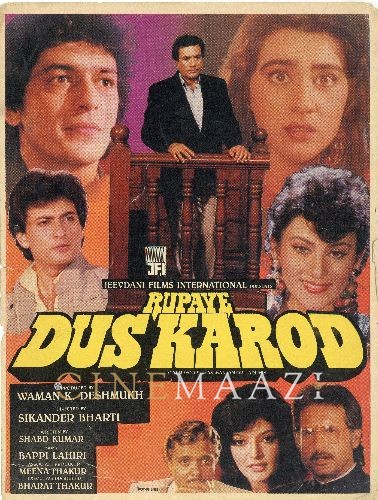
Rupaye Dus Karod 1991
-
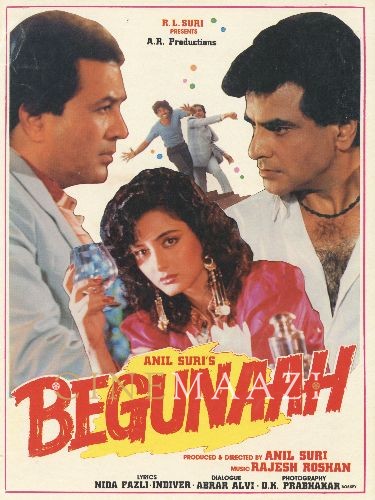
Begunaah 1991
-
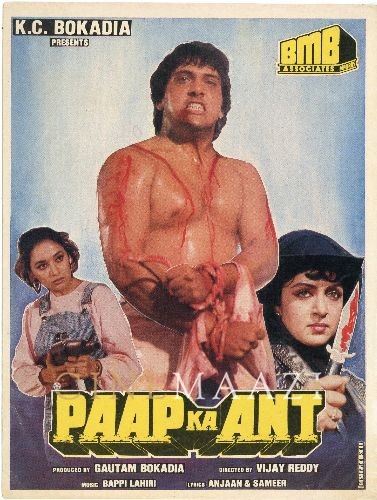
Paap Ka Ant 1989
-
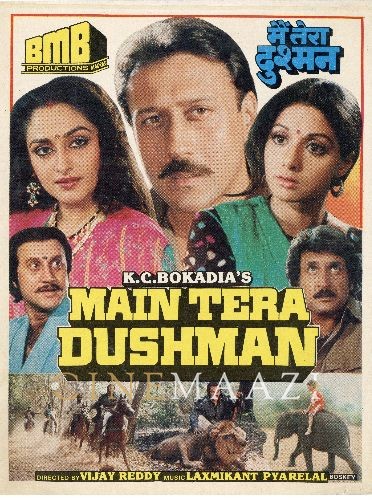
Main Tera Dushman 1989
-

Ghar Ka Chiraag 1989
-

Woh Phir Aayegi 1988
-

Nazrana 1987
-
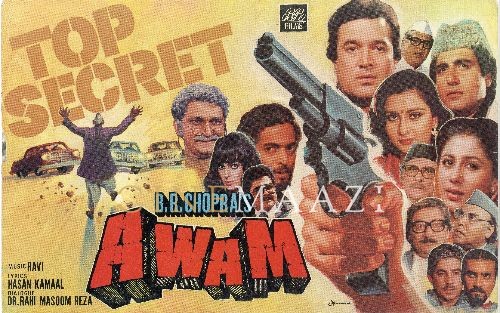
Awam 1987
-
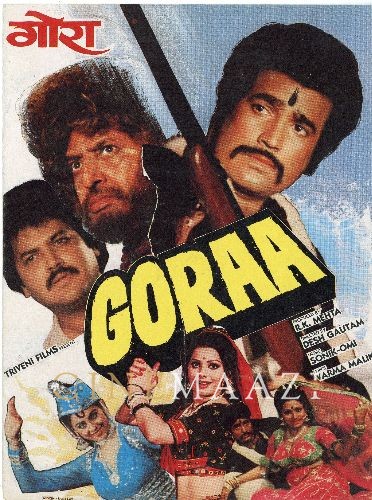
Goraa 1987
-
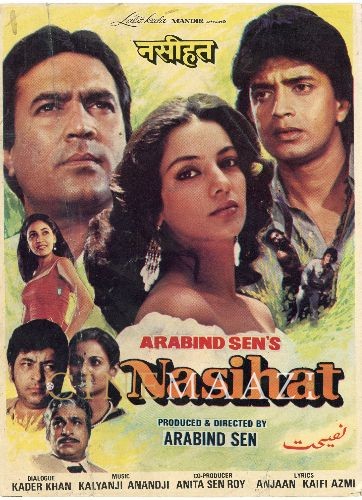
Nasihat 1986
-
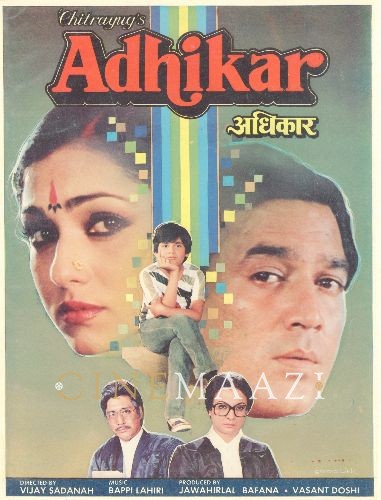
Adhikar 1986
-

Amrit 1986
-









.jpg)



